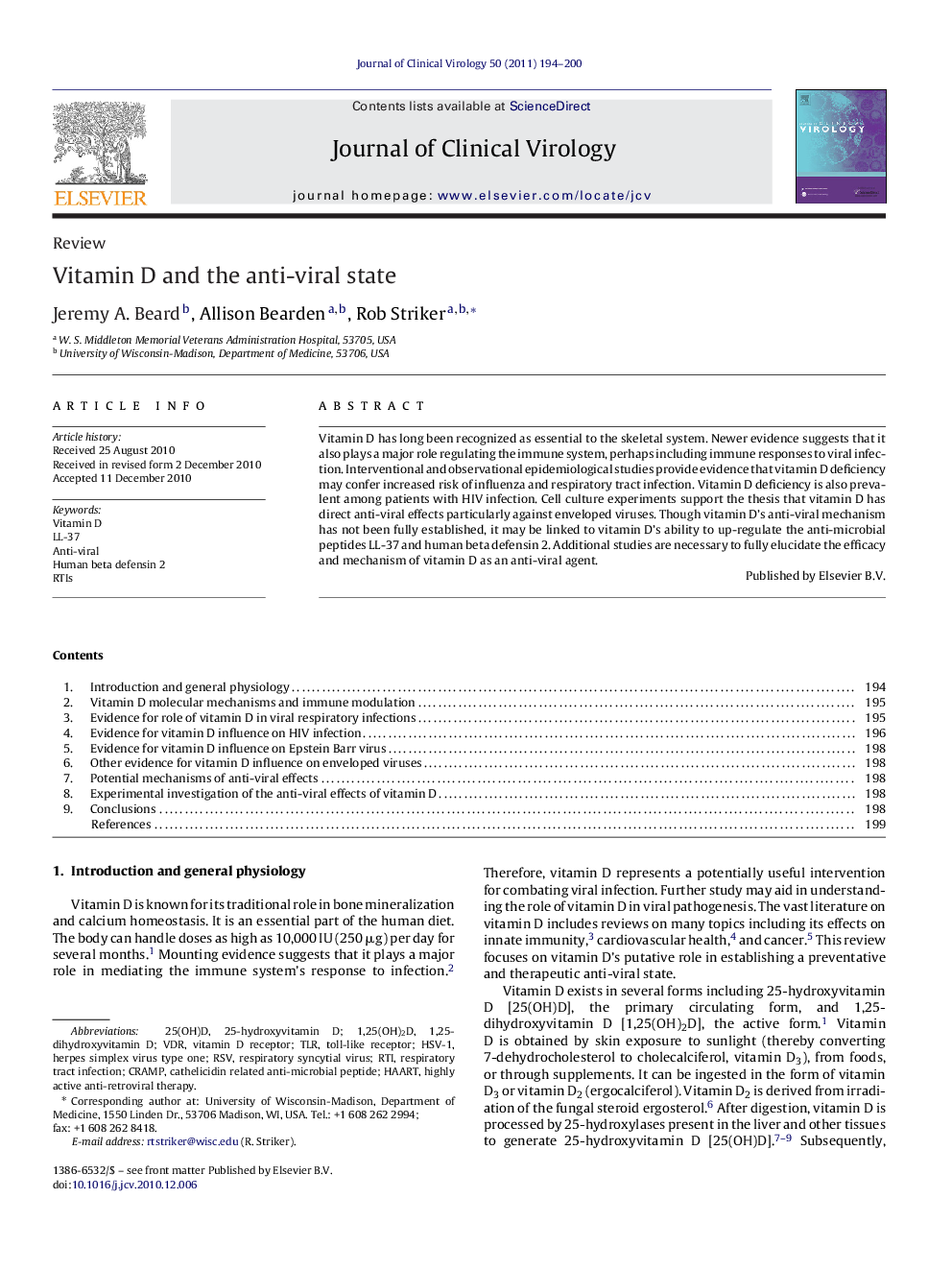| Article ID | Journal | Published Year | Pages | File Type |
|---|---|---|---|---|
| 3369231 | Journal of Clinical Virology | 2011 | 7 Pages |
Vitamin D has long been recognized as essential to the skeletal system. Newer evidence suggests that it also plays a major role regulating the immune system, perhaps including immune responses to viral infection. Interventional and observational epidemiological studies provide evidence that vitamin D deficiency may confer increased risk of influenza and respiratory tract infection. Vitamin D deficiency is also prevalent among patients with HIV infection. Cell culture experiments support the thesis that vitamin D has direct anti-viral effects particularly against enveloped viruses. Though vitamin D's anti-viral mechanism has not been fully established, it may be linked to vitamin D's ability to up-regulate the anti-microbial peptides LL-37 and human beta defensin 2. Additional studies are necessary to fully elucidate the efficacy and mechanism of vitamin D as an anti-viral agent.
